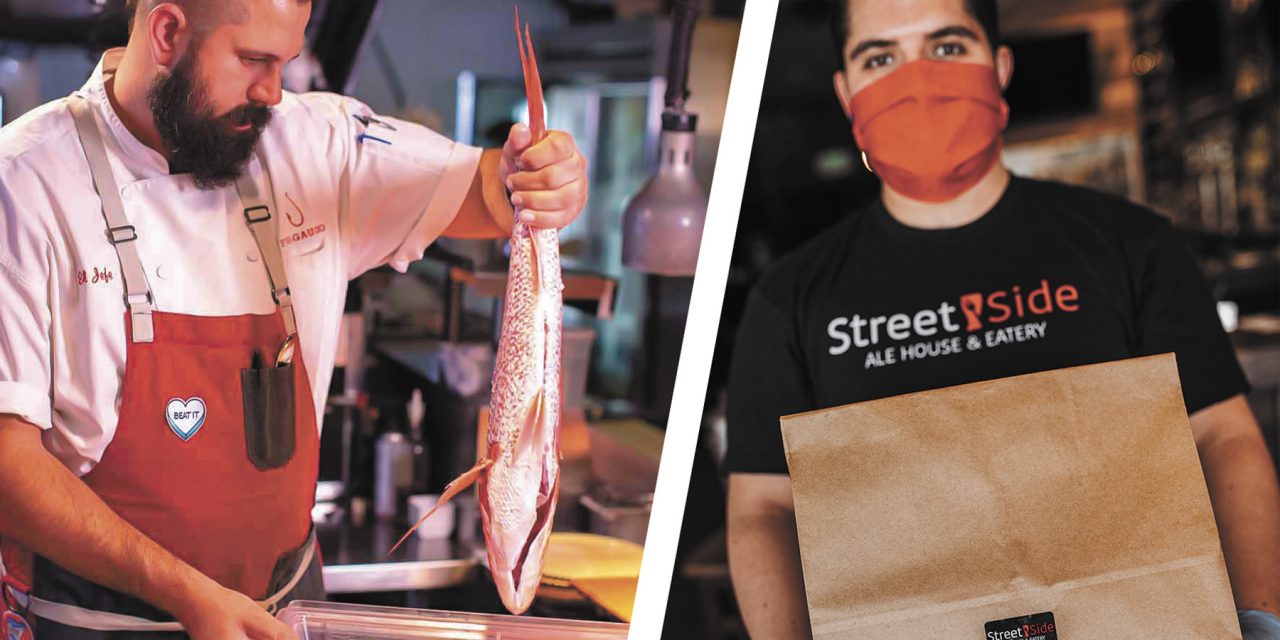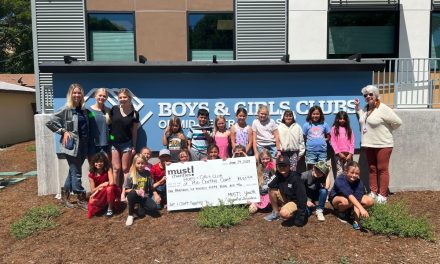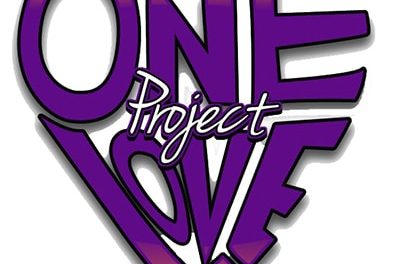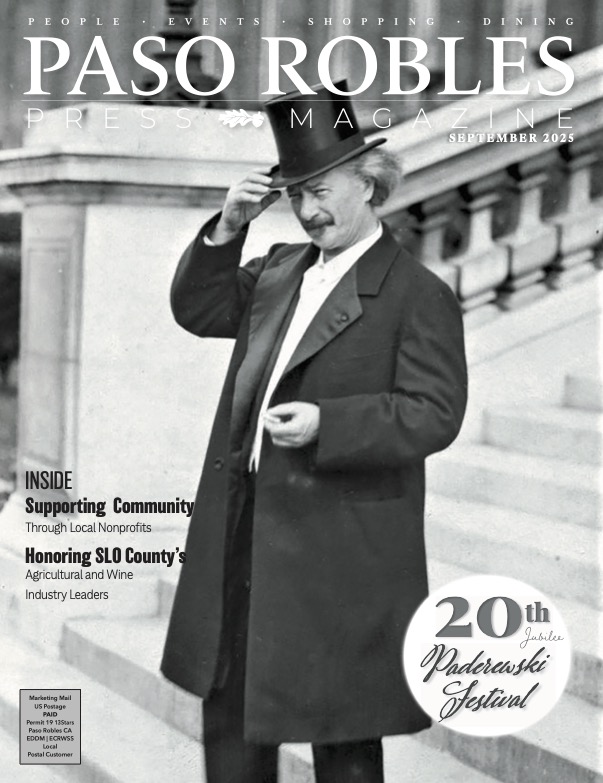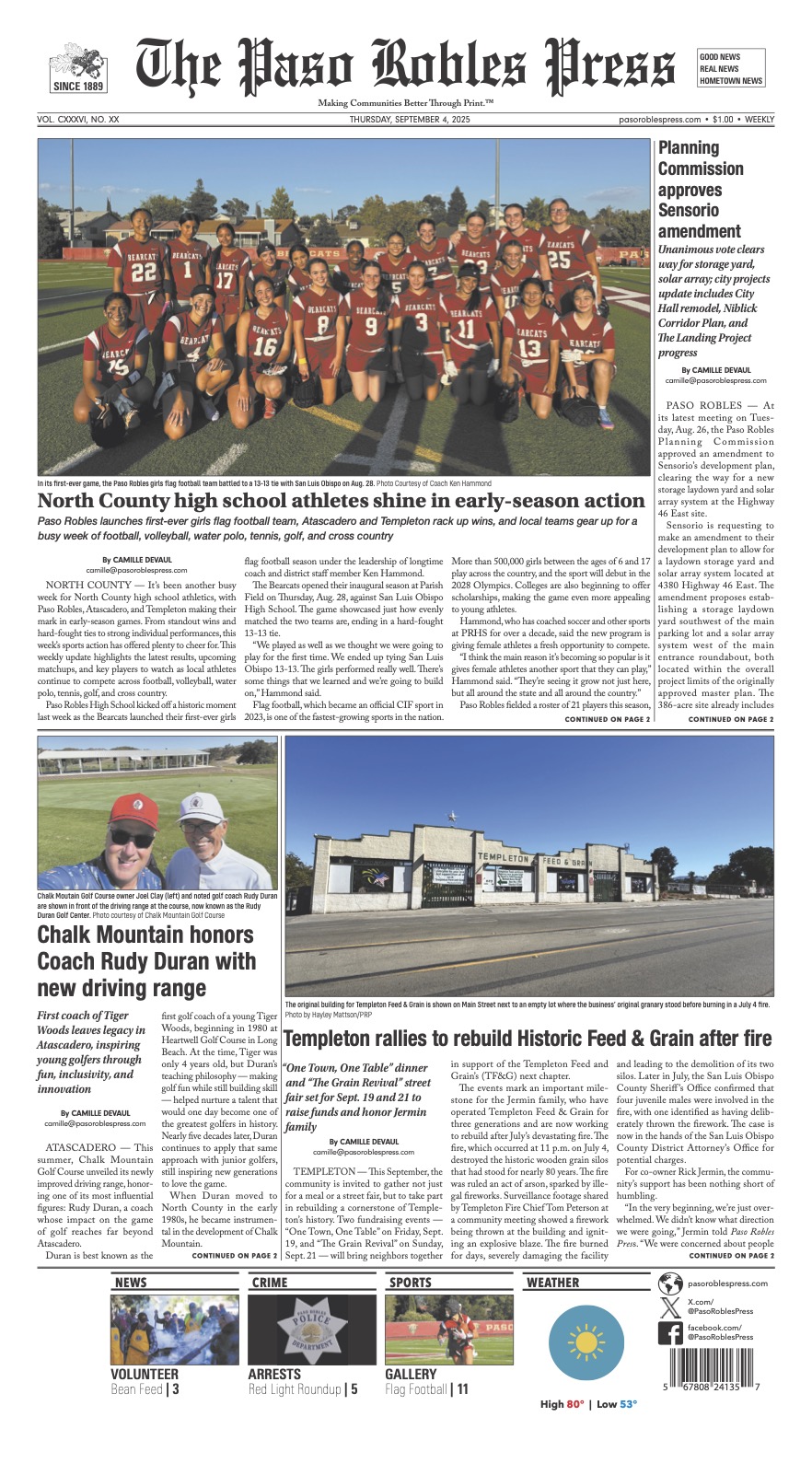As we come upon the conclusion of the second month of our COVID-19 induced lockdown, meeting friends and family for a meal or drinks seems a distant memory. The lockdown forced restaurants to close their doors for dine-in meals and caused a chain-reaction of brainstorming takeout ideas and loan paperwork for local restaurateurs. Included among them are locals Eric Peterson and Donovan Schmit.
Peterson opened his first restaurant, Guest House Grill, in the recession-wrought year — 2008. Pushing through the year, he expanded his restaurant business, North County Restaurant Group, which now includes: Street Side Ale House & Eatery, Comfort American Kitchen, Country Touch Cafe, Jack’s Bar and Grill, and Touch of Paso.
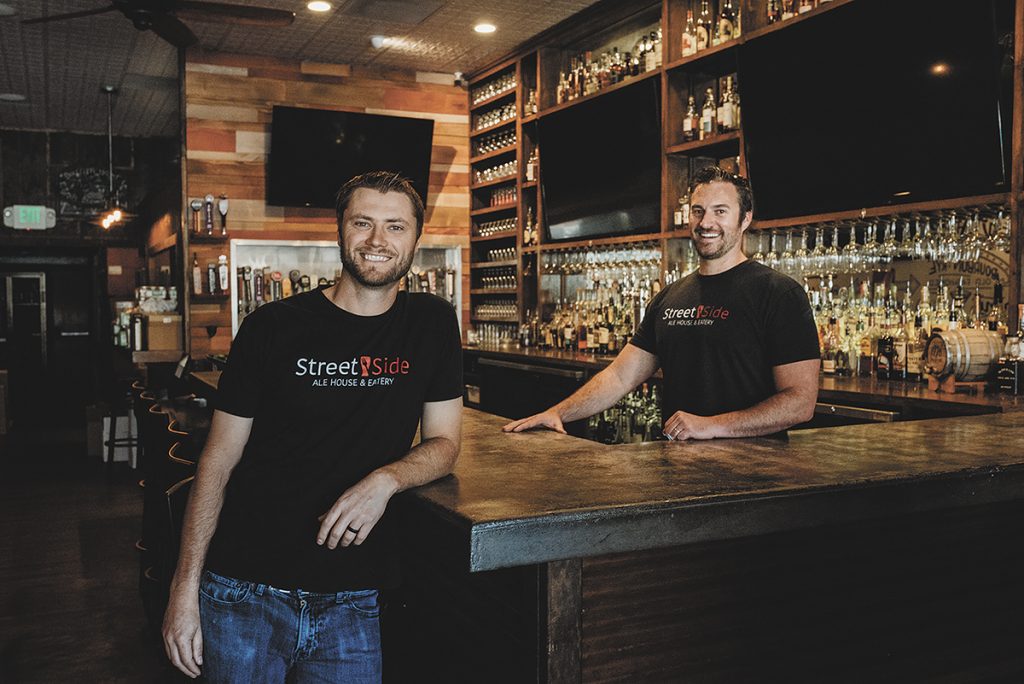
No stranger to tough times, Peterson took the mentality and grit he developed in 2008 to push himself and his team through the COVID-19 lockdown, which could not have come at a worse time for a restaurant owner — days before St. Patrick’s Day. Usually, the most profitable day of the year for restaurants and bars, this St. Patrick’s Day became one he will likely not forget for the rest of his career.
“It happened really quickly,” Peterson said. “St. Paddy’s day is my frame of reference. Friday was busy, and people were starting to hear about [the lockdown] … Sunday was when things really started to slow down.”




By Monday, lockdown orders forced restaurants to seize serving alcohol — to prevent gatherings of St. Patrick celebrants on Tuesday.
“[Our restaurants] went from a full-fledged Saturday,” Peterson said, “[then] by Monday, we were doing 25% of what we do…we stayed open on St Paddy’s Day even though we could not sell alcohol.”
The next day, Wednesday, Eric was forced to lay off his entire staff of nearly 200 individuals and close his restaurants’ doors. The day off allowed Eric and his team to regroup and brainstorm, resulting in reopening the following day with about 5 to 10 percent of their staff for takeout only.
Co-owner of Fish Gaucho and Pappy McGregor’s, Schmit experienced a similar St. Patrick’s day to Peterson but took an alternative approach to the lockdown.
A restaurant owner for nineteen-years with his cousin and business partner, Troy Larkin, Schmit knows St. Patrick’s Day is the busiest day of the year for his restaurants. Hearing of the lockdown, he hoped it would happen after the holiday. Sadly, orders forced Donovan to furlough his staff and close his restaurant doors, but he remained hopeful they would reopen after two weeks.
Anticipation for a shorter lockdown led Donovan to wait on initiating any takeout service and instead rode out the two weeks on the restaurants’ savings.
With this anticipation, he offered his staff to take home any food they wanted from the kitchens and turned off the lights. As the two weeks looked to turn into three, then four weeks, Schmit applied for the Paycheck Protection Program loan.
The Paycheck Protection Program (PPP) is a loan introduced with the Coronavirus Stimulus Bill, which grants small businesses the means to keep their employees on their payrolls and cover business expenses. Both Schmit and Peterson applied for the PPP loan in what they recount as a frenzy of paperwork and top-notch collaborative effort with their bankers.
Adding to the stress of the process was the knowledge they were competing with other small businesses for a fixed amount of money. When both restaurateurs found out they were accepted for the loan, a weight was lifted from their shoulders. Schmit recounts how the agony of waiting seven to ten days from application to the first deposit turned to surprise when he found out they would receive the full amount they hoped for, “…we were shocked we got it all.”
For Schmit’s restaurants — Fish Gaucho and Pappy McGregor’s — the PPP loan covered two-and-a-half months of payroll expenses, rent, and utilities. His relief in knowing his over-100 employees were taken care of is evident in his voice as he stated: “once we got the loan, the stress of money stopped.”
When Peterson received word on his approval for the PPP, he felt a similar relief to Schmit. For Peterson, the PPP is “The only reason [the restaurants are] staying alive … because we were lucky enough to get the PPP.” noting the restaurants’ high rents with their street-front property.
Today, Peterson’s restaurants are operating purely with pick-up or delivery only, with fewer than half his employees back to work. He hopes they will return to running full-force with his full staff in the near future.
In the meantime, his restaurants rearranged to meet social-distancing standards, with staff wearing masks made by Atascadero’s Sew Fun and utilizing sanitation products made by local distilleries.
The switch to takeout-only means the dishes are replaced with high-quality to-go boxes (to ensure one’s fries do not arrive soggy), and mason jars now hold to-go cocktails.
Peterson feels like they have found their “new groove” and when asked what the silver lining of the entire experience has been for him, he said,” We always talked about the ‘Amazon-Age’ with everything delivered to your doorstep … and [we] always talked about online orders … this forced us to do that, and this is something we will do forever. I think especially for the next 12 to 18 months, until whenever.”
With the PPP loan in hand, Schmit plans to initiate takeout-only this week as the County issues guidelines for the anticipated new lock-down-lifting phases. He awaits further rules and news from the County and will adhere to social-distancing regulations on masks, gloves, signs, and sanitation stations.
As his restaurants ease back into business, they will open with a limited menu to allow an eager Donovan to refill his kitchens with food and re-employ his prep staff and cooks. He hopes to re-employ his entire team in the near future and maintains an open line of communication with them on any updates.
Schmit stated the hardest part of the lockdown has been the unknown that comes with the “waiting game” and knowing he can only re-employ half of his work-force as his restaurants can only operate at half their potential, “We want to bring everyone back,” Schmit said. “[The difficulty is] how do we remain profitable to have enough business coming through the door to keep everybody?” Even with his concerns for the unknown, he presented confidence.
“We should be able to weather the storm for however many months it takes us to get back to full steam,” Schmit said.
The brunt of the storm will pass for both gentlemen as they look ahead to the upcoming weeks, months, and years. Schmit remains optimistic for the future and knows things will settle into a new normal.
“I believe we are in a fortunate area that once we are able to open, this is an area that should thrive quicker than other areas,” Schmit said, “with the amount of wine tourism and coastal traffic.”
Peterson echoed Schmit’s optimism, reflecting his experience with the community during the lockdown.
“We are eager to get back to work, see our employees and customers, and serve the community again,” Peterson said. “Seeing the community come out, the support of our customers has been really genuine; the whole community has been really positive about this.” Regardless of what the storm brings, the two restaurateurs and their teams are eager to continue their service to the community, just as the community is eager to return to their tables.

